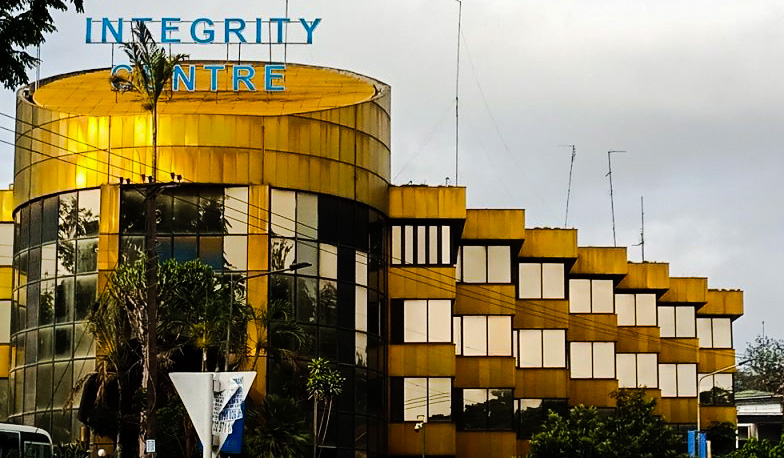Corruption remains endemic to Kenya’s public sector, scandals that have been exposed, however, have not ended the vice as a result of impunity.
Afrobarometer’s Global Corruption Barometer – Africa 2019 found out that 67 per cent of Kenyans think corruption increased in the previous 12 months and 71 per cent thought the government was ‘doing a bad job of tackling corruption’.
On the other hand, in the Corruption Perceptions Index 2019, Kenya is ranked 137 out of 180 countries with the highest corruption. In 2018, the country was ranked 144th placing it in the bottom 21 %.
The Ethics and Anti-Corruption Commission (EACC) says “The National values provided in Article 10 of the Constitution have not been fully entrenched in our society given the culture of corruption and impunity that has permeated the society over a long period.”
This is besides the Sessional Paper No 8 of 2013 having been approved by Parliament in December 2015 aimed at operationalizing and institutionalizing the national values and principles of governance enshrined in the constitution.
Between 2014 and 2019, the EACC recovered KSh13 billion following the conclusion of 180 graft cases it had filed.
In 2018, Interior PS Karanja Kibicho in an affidavit admitted that corruption in Kenya has grown by 240 per cent over the past five years since President Uhuru Kenyatta’s government came into power.
Recently, the European Commission and External Action Service (EEAS) in an audit report on European Development Fund (EDF) aid to Kenya between 2014 and 2020, “We did not see sufficient evidence that the aid is channelled to where it can do most to reduce poverty.”
Consequently, they recommended that in prioritizing sustainable economic development and the rule of law, “… prioritize sectors with the potential to attract foreign direct investment, create jobs and grow exports, and actions supporting the rule of law, including the fight against corruption.”
President Uhuru Kenyatta in 2015 declared corruption a threat to National Security.
“I believe that corruption is a standing threat to our national security,” President Uhuru Kenyatta said in televised remarks. “The bribe accepted by an official can lead to successful terrorist attacks that kill Kenyans. It can let a criminal off the hook for them to return to crime and harm Kenyans.”
In the wake of the Covid-19 pandemic, the human cost of corruption remains largely huge. Those allegedly accused, continue to enjoy lives of luxury at the expense of people living in grinding poverty.
In April 2020, a leaked memo showed that Ksh1.3 billion part of the Ksh 1 billion from the World Bank to Carter for emergency response was spent on leasing ambulances, Ksh4 million for tea and snacks, and Ksh2 million on airtime.
President Kenyatta directed the graft agency to investigate the multimillion-dollar scandal that hit the Kenya Medical Supplies Authority – KEMSA.
KEMSA top officials are on the spot over claims of manipulating the tender process, leading to the loss of hundreds of millions. According to the Daily Nation, KEMSA approved tenders worth KSh7.7 billion which were above its approved budget. Only KSh4.7 billion should have gone into procurement, ‘meaning the commitment letter issued by Kemsa exceeded the budget by KSh3 billion’.
****
The African Union Convention on Preventing and Combating Corruption defines a series of corruption-linked offences in article 4, and Article 5 on ‘the legislative and other measures’ requires member states to ‘establish, maintain and strengthen independent national anti-corruption authorities or agencies’.
Kenya ratified the United Nations Convention against Corruption (UNCAC) on 9 December 2003. On 3 February 2007, Kenya ratified the African Union Convention on Preventing and Combating Corruption (AU Convention).
In 2014, Parliament passed laws to domesticate the UNCAC and AU conventions, including the 2012 Leadership and Integrity Act, the 2011 Ethics and Anti-Corruption Commission Act, and the 2009 Proceeds of Crime and Anti-Money Laundering Act.
In 2015, Kenya and the U.S. jointly committed to promoting good governance and anti-corruption efforts in the country. Key among them, expanding its program to transparently utilize eProcurement systems to eliminate corruption in the awarding of contracts and licenses, and committing to finalizing its transition to eProcurement by June 2016.
The Effectiveness of Anti-Corruption Agencies in East Africa Kenya, Tanzania and Uganda 2015 Report with regards to Kenya notes that:
“Prevention, suppression and punishment of corruption frequently feature in Kenyan political rhetoric but rarely is this rhetoric matched by action. Kenya has, since independence, consistently seen undertakings being given regarding corruption, only for these undertakings to be followed by inaction.”
“Kenya needs to get past the point of celebrating the existence of the legal and institutional instruments needed to fight corruption and start to use these to end its perennial status and ranking as a country in which corruption is rampant. Kenya has never suffered for want of adequate legislation; its problem is impunity and lack of operationalisation of laws and policies.”





2 Comments
Pingback: TI-Kenya Calls for Comprehensive Whistleblower Protection Law
Pingback: KEMSA Embarks on Transformation Model